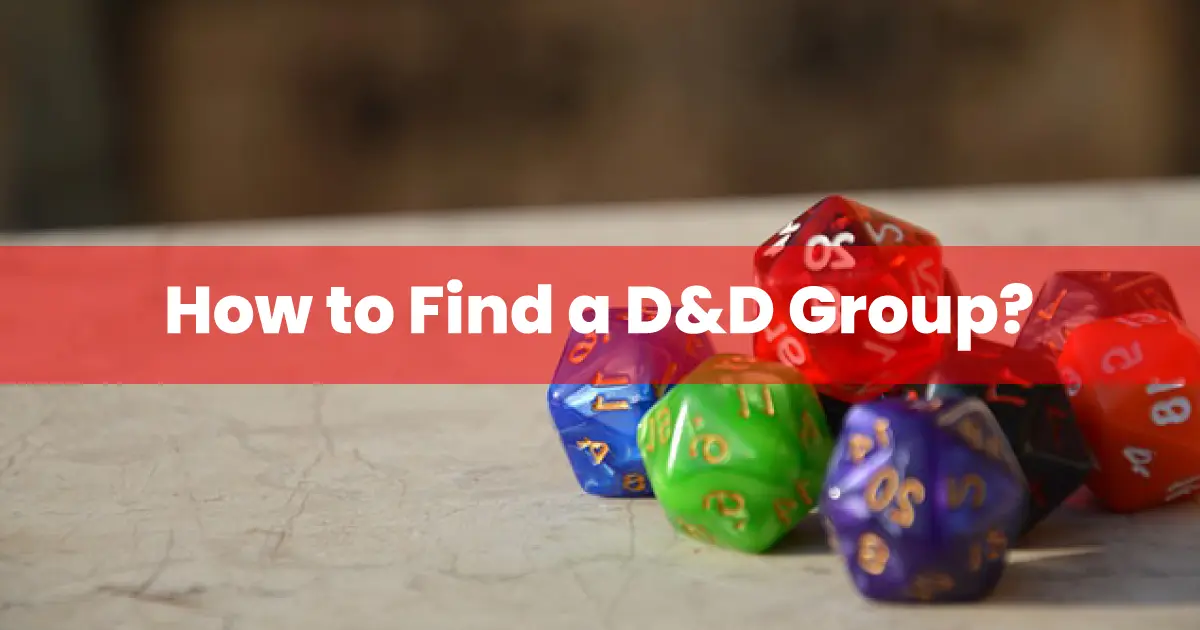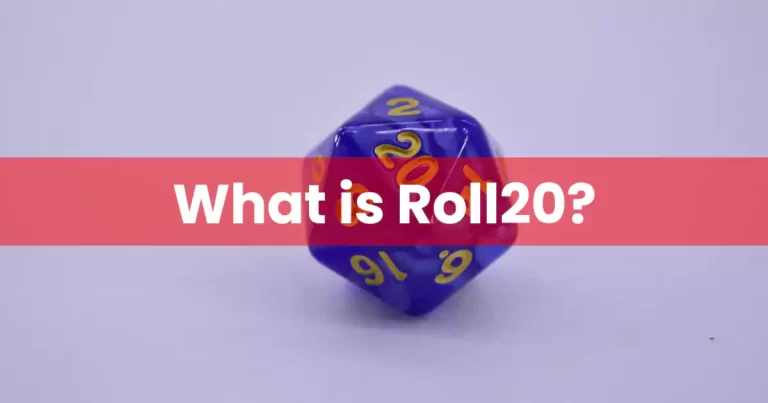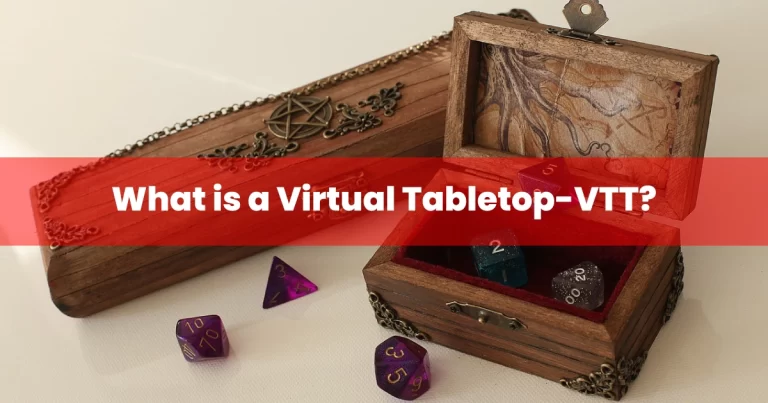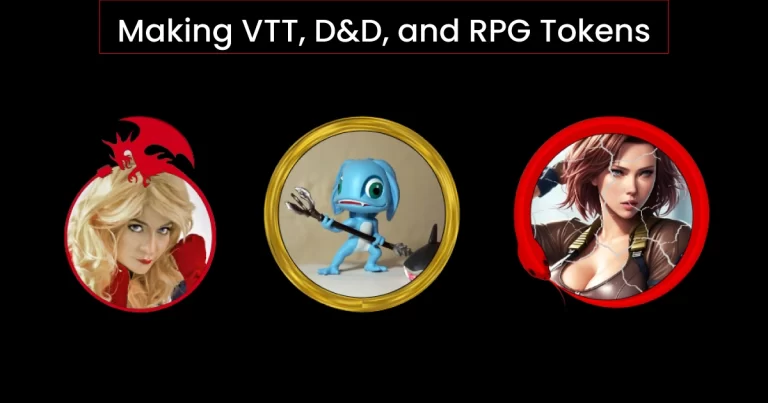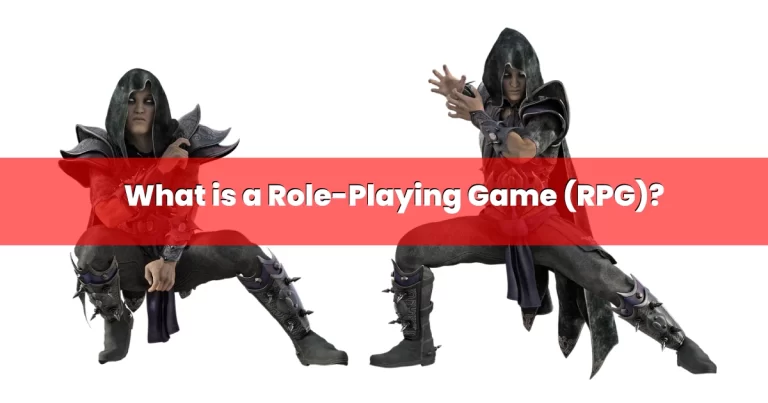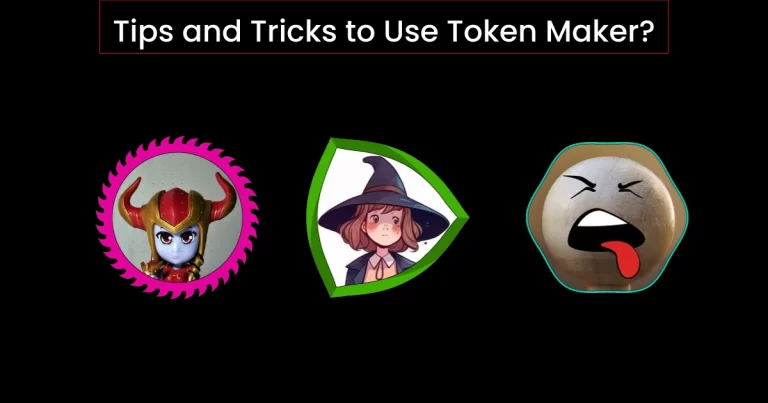How to Find a DnD Group: Best Guide to Find the Perfect Crew
So you’ve got the itch to dive into the epic world of Dungeons and Dragons (D&D), but you’re wondering how to find a group to join? Don’t worry, we’ve got you covered! Whether you’re a total newbie or a seasoned adventurer, this detailed guide will help you about how to find a D&D group. We’ll explore offline options like local game stores and conventions where you can immerse yourself in the magic of face-to-face gameplay. And if online adventures are more your style, we’ll dive into social listing sites and platforms like Roll20.net. Get ready to roll the dice and enjoy the incredible quests with your new D&D crew!
How to Find a D&D Group: Offline Methods
The following methods will surely help you find a D&D group.
1. The Starter’s Set
The official D&D Starter Set is a comprehensive package that includes dice, pre-made characters, a basic rulebook, and an introductory adventure. It’s a great starting point for beginners and can help you form a D&D group with friends who are interested in playing.
2.Board Game Cafes
Check out your local game stores or board game cafes. These establishments often host D&D nights or have designated spaces for tabletop gaming. They provide a welcoming environment for players of all experience levels and may offer resources, guidance, and opportunities to connect with other D&D enthusiasts.
3. Conventions
Gaming conventions are excellent places to find a D&D group. These events attract a diverse range of players, from beginners to seasoned veterans. Attendees can participate in organized D&D sessions, meet like-minded individuals, and potentially join new groups for future gameplay.
4. Community Bulletin Boards
Colleges, libraries, and coffee shops frequently have community bulletin boards where people can post advertisements for D&D groups or look for existing ones. Check these boards regularly to find local gaming communities or consider starting your own group by creating a listing.
5. D&D Clubs and Organizations
Some colleges, universities, or community centers may have D&D clubs or organizations that facilitate gaming sessions. These groups are often welcoming to new players and provide a supportive environment to learn and enjoy the game.
6. Word of Mouth
Spread the word among your friends, family, and colleagues that you’re interested in playing D&D. You might be surprised to find out that someone you know is also a fan or knows others who are. Personal connections can lead to forming a D&D group or joining an existing one.
7. Social Events
Attend local gaming or geek culture events, such as game nights, comic conventions, or cosplay gatherings. These events attract a diverse range of individuals with shared interests, including D&D players. Engage in conversations and network with fellow attendees to find potential group members.
8. Community Centers and Recreation Programs
Check with local community centers, recreational facilities, or adult education programs to see if they offer D&D sessions or have information about established groups. These organizations may host regular gaming events or have resources to help you connect with fellow players.
How to Find a D&D Group: Online Methods
Other than offline methods, there exists plenty of online ways to find a DnD group. Try one or more of these options to achieve the best results. Here comes the ways.
1. Social Listing Sites
Platforms like Facebook and Meetup provide groups dedicated to D&D. Search for “D&D” plus your location to find local groups, or join broader D&D groups to connect with players online or offline.
2. Roll20.net
Roll20.net is an online platform specifically designed for playing D&D and other roleplaying games. Use their search function to find games, filter by D&D 5e if desired, and select options like “Welcomes New Players” or specific time/day preferences.
3. Forums
Join online forums such as Reddit’s r/lfg, DnDBeyond, RPGGeek or StartPlaying. These platforms allow you to either start a discussion as a Dungeon Master or respond to DMs seeking players.
4. Discord
Create a Discord account and join D&D-related channels where new games are posted. Many online D&D groups, both for beginners and experienced players, use Discord for communication during gameplay.
5. Virtual Tabletop Platforms:
Explore virtual tabletop platforms like Fantasy Grounds or Astral Tabletop, which provide tools and resources for online D&D gameplay. These platforms often have built-in matchmaking features to help you find groups.
6. D&D Subreddits:
Engage with D&D-focused subreddits such as r/DungeonsAndDragons, r/DnD, or r/LFG to connect with players and discover online group opportunities.
7. Online Gaming Communities:
Join online gaming communities or guilds that have dedicated D&D sections. Platforms like Steam, Xbox Live, or PlayStation Network often have groups or forums where you can find D&D players.
8. D&D Facebook Groups:
Participate in Facebook groups dedicated to D&D, such as “Dungeons & Dragons 5th Edition” or “Tabletop RPG One Shot Group.” These groups offer a space to connect with other players and potentially find a group to join.
9. D&D Discords:
Explore D&D-specific Discords, which are communities focused solely on D&D discussions, games, and group formations. Many Discords have channels dedicated to finding players or DMs.
10. Online Classifieds and Marketplaces:
Utilize online classifieds and marketplaces like Craigslist or Roll20’s LFG section to search for D&D groups or create your own listing to attract interested players.
Keeping D&D Group Attractive and Engaging: Best Tips
The following tips help keep the players engaged and prevent them from getting bored.
1. Clear Communication:
Establish open and clear communication from the beginning. Discuss everyone’s expectations and playstyles, ensuring that everyone is on the same page. This helps create a positive and engaging atmosphere within the group.
2. Consistency and Commitment:
Encourage consistency and commitment from all group members. Regularly scheduled sessions and reliable attendance contribute to the group’s stability and enhance the overall gaming experience.
3. Rotate Roles:
Consider rotating roles within the group, allowing different players to take turns as the Dungeon Master. This not only adds variety but also gives everyone a chance to contribute creatively and share the responsibility of running the game.
4. Engaging Storylines:
Craft engaging storylines that captivate the players’ imaginations. Incorporate intriguing plot twists, memorable non-player characters (NPCs), and exciting challenges to keep the group invested in the ongoing narrative.
5. Encourage Character Development:
Promote character development by providing opportunities for personal growth and meaningful interactions. Encourage players to explore their characters’ backgrounds, motivations, and goals, fostering deeper connections to the game world.
6. Reward Creativity and Roleplaying:
Acknowledge and reward creative solutions and immersive roleplaying. Encourage players to think outside the box, embrace their character’s personality, and contribute to the collaborative storytelling experience.
7. Regular Feedback and Session Reflections:
Regularly seek feedback from the group to understand what aspects of the game they enjoy and what areas could be improved. Conduct session reflections to discuss memorable moments, player highlights, and suggestions for enhancing future gameplay.
Conclusion
So, in a nutshell, finding the perfect D&D group is the key to an exhilarating adventure. Whether you go offline or explore online options, there are plenty of ways to discover your ideal crew. Once you’ve found them, keep things engaging by communicating clearly, being consistent, trying out different roles, and weaving captivating storylines. Don’t forget character development, rewarding creativity, and seeking regular feedback. So, gather your squad, unleash your imagination, and get ready for epic quests that’ll keep you hooked in the exciting world of D&D. Happy finding!

